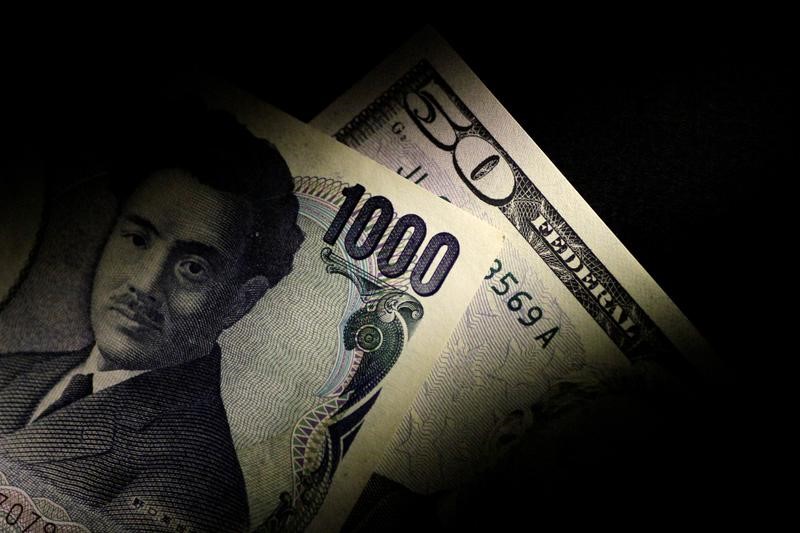Investing.com – The US dollar fell in early European trading on Thursday, giving back some of the previous session’s gains, while the Japanese yen fell into intervention territory.
At 04:30 ET (08:30 GMT), the Dollar Index, which tracks the greenback against a basket of six other currencies, was trading 0.1% lower at 105.650.
The dollar slides ahead of the presidential debate
The greenback retreated on Thursday after rising about 0.4% in the previous session, climbing near a two-month high.
The US Federal Reserve governor reiterated her basic view on Wednesday that “inflation will continue to decline if policy rates remain stable,” and that rate cuts will be appropriate “ultimately” if inflation moves sustainably toward 2%.
Fed officials have repeatedly called for more data showing inflation retreating before agreeing to rate cuts, putting Friday’s data in the spotlight.
This is the central bank’s favorite inflation gauge and should show whether the emerging slowdown in inflation continues.
Also of interest will be the first presidential debate between Joe Biden and Donald Trump, ahead of their election rematch in November.
“Our basic assumption is that Trump is the most positive candidate for the dollar due to protectionist pledges, geopolitical stances and plans for lower taxes, but that markets have not had a real chance to trade on US political news as monetary policy dominated.” Analysts at ING reported this in a note.
“Any currency action based on the perceived winner of the debate can help us calibrate the coefficients for the November market reaction function.”
Euro “unattractive” ahead of French elections
rose 0.1% to 1.0688, recovering slightly from a trading trough of 1.0666 in Wednesday’s trading.
France’s elections kick off this weekend, with political unrest in France following President Emmanuel Macron’s shock election putting pressure on the single currency.
“The euro remains unattractive as long as there is no clarity on the French vote (note that this may not happen before the July 7 runoff outcome),” ING added.
“The next key levels are 1.0650 and 1.0600 for EUR/USD. These can be achieved thanks to some moves after the US debate last night, although we expect a US core PCE of 0.1% month-on-month tomorrow to send EUR/USD closer to 1.0700 than 1.0600 through the weekend .”
rose 0.1% to 1.2631, with sterling trading within tight ranges ahead of next week’s general election, with the currency’s future largely dependent on the next government convincing wary investors that its plans to restore a stagnant economy are credible.
Yen weak despite warnings
In Asia, it traded 0.1% lower to 160.59 after the yen hit its weakest against the dollar since December 1986 on Wednesday.
Pressure on the Japanese currency continued despite repeated warnings from Japanese officials about possible intervention in light of excessive volatility.
Japan’s top currency diplomat, Masato Kanda, said authorities are “deeply concerned and on high alert” about the yen’s rapid decline.
“After we have already spent $61 billion on official currency intervention and the USD/JPY went back to 160 (and more) in less than two months before the first operation, the Treasury Secretary’s steps must be carefully weighed, ING added.
“What is clear is that currency interventions are a temporary measure to curb volatility, and not a solution to a structurally oversold currency.”
moved marginally higher to 7.2689 and hovered at a seven-month high on Thursday after a seventh straight weak midpoint fix from the People’s Bank of China.


